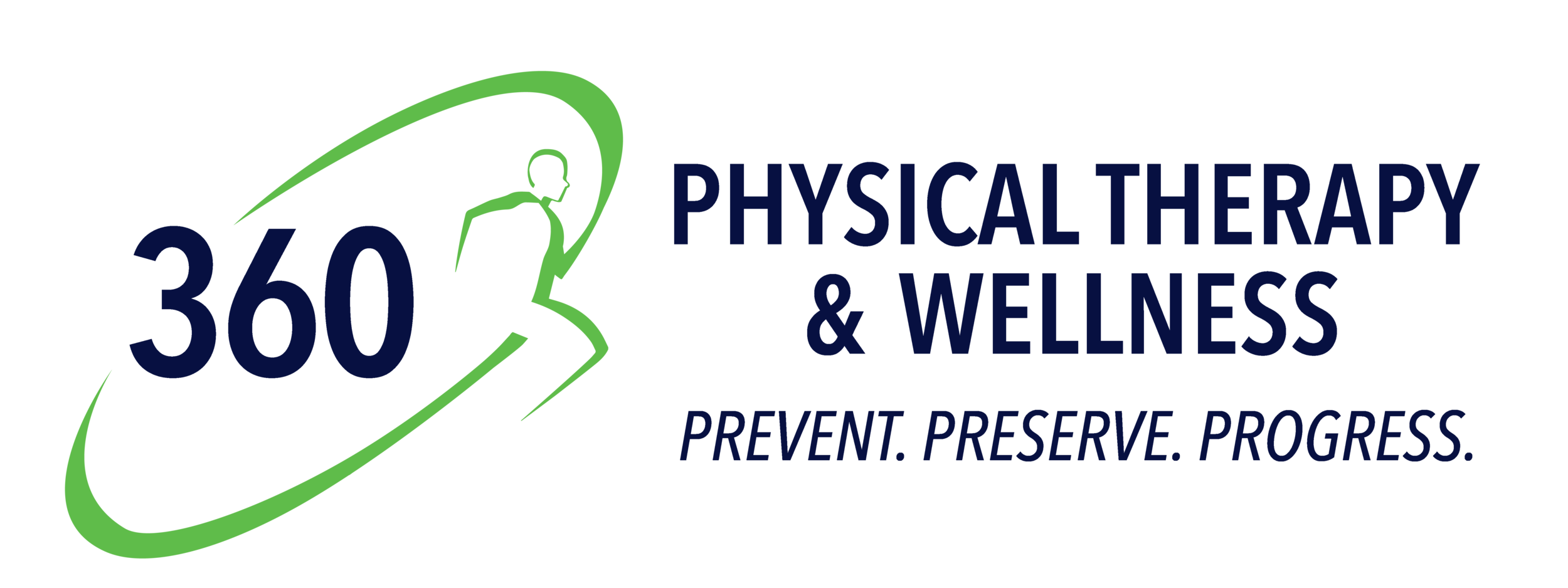PLANTAR FASCIITIS
Do you often feel a sharp, stabbing pain in the bottom of your foot when you stand or begin to walk? Do you feel this pain as soon as you step out of bed in the morning? One out of ten people in the U.S. complain of persistent pain along the arch of their foot and in the heel. This is a condition known as plantar fasciitis and results from overuse (often found in runners and those who stand for a living), being overweight, and/or wearing shoes with little or no support.
The board-certified physical therapists at 360 Physical Therapy & Wellness are here to help! Physical therapy for plantar fasciitis includes a combination of manual therapy and exercises, which have been shown to reduce foot pain. Read on, to learn more about plantar fasciitis and how effective physical therapy can be in treating your pain.
WHAT IS PLANTAR FASCIITIS?
Plantar fasciitis is a common injury resulting from overuse and repetitive strain. It can cause pain in runners, hikers, walkers, and those occupations that require long periods of standing—especially on hard surfaces.
Your plantar fascia are the tissues that support the arch of your foot, running from your heel to your toes. These tissues absorb shock when you walk or run. If these tissues become too tense or strained, small tears can occur in the fascia. The condition may worsen with repeated pressure or impact over time.
Factors that increase your risk of developing plantar fasciitis:
Age. Plantar fasciitis is commonly found in those between 40-60 years of age.
Certain types of exercise. Long-distance running, ballet and aerobic dance are common activities that can place a lot of stress on the tissues of the foot (plantar fascia).
Obesity. Extra weight puts extra stress on your plantar fascia.
Certain occupations. Factory workers, teachers, cashiers, restaurant staff and others who spend most of their work hours walking or standing on hard surfaces have an increased risk of developing plantar fasciitis.
Flat fee or high arches. The mechanics of your foot and how you walk can affect the way weight is distributed. If improperly balanced, extra stress is placed on your plantar fascia and injury can occur.
Foot pain in the morning is a signature symptom of plantar fasciitis. It causes mainly foot arch and/or heel pain. Most people don’t feel treatment is necessary, as another signature symptom is that the pain typically subsides as you are more active throughout your day.
Plantar fasciitis is first treated with rest, stretching, and arch support (inserts or orthopedic shoes). Severe chronic cases can be unbearable and can affect your health, fitness, and overall satisfaction.
PHYSICAL THERAPY FOR PLANTAR FASCIITIS
It is no fun living with any type of pain, especially foot pain. Injuries to the foot and/or ankle should be taken seriously and treated immediately so your quality of life doesn’t suffer.
360 Physical Therapy & Wellness offers an individually tailored approach to using physical therapy for plantar fasciitis. Specific therapies include:
Manual therapy. Muscles, joints, or tissues that are inflamed or tense benefit from manual therapy. Your physical therapist will perform skilled, hands-on techniques such as joint manipulation and mobilization and massage to improve tissue extensibility; increase range of motion; reduce tension; reduce pain; and reduce soft tissue swelling and inflammation.
Joint mobilization/manipulation. Specialized, hands-on manual therapy techniques aimed at decreasing pain and improving mobility in the ankle and foot.
Therapeutic stretching. Stretching is a common intervention performed during physical therapy for plantar fasciitis. It assists in improving the length and flexibility of the plantar fascia and reducing pain.
Dry needling. Dry needling for plantar fasciitis has been proven effective in improving pain and function over simply performing manual therapy and stretching techniques alone. The certified professionals at 360 Physical Therapy & Wellness are experts in performing dry needling treatments.
Modern therapeutic approaches. Modern technology in physical therapy includes the use of ultrasound and electrical muscle stimulation, helping to reduce pain and improve recovery.
If you suffer from foot and ankle pain, and think you may have plantar fasciitis, schedule your consultation with a physical therapist at 360 Physical Therapy & Wellness today.



